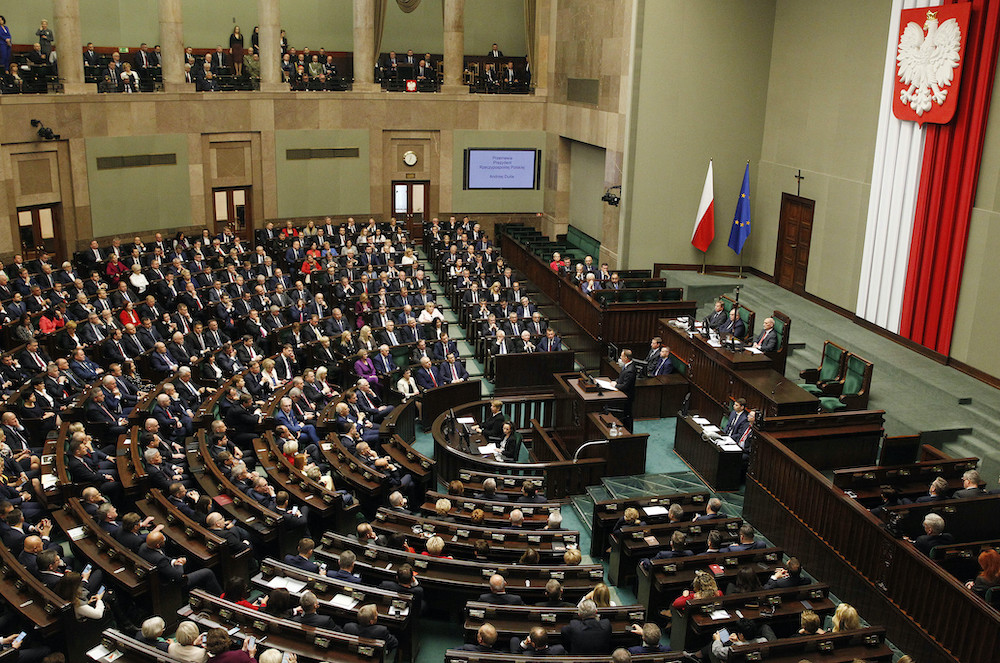Poland’s Lower House of Parliament, the Sejm, passed legislation on Friday that had been agreed upon between the Polish government and the European Commission. It shifts disciplinary proceedings against judges from the Supreme Court to the chief Administrative Court and allows judges’ credentials to be challenged in individual cases by other judges.
Most of the ruling party’s MPs voted for it but not all. The Solidarity Poland faction voted against it, as did the Confederation party and the liberal Poland 2050 party. However, most of the opposition MPs from the liberal Civic Platform (PO), the Left, and the centrist Polish People’s Party (PSL) abstained, arguing that although they did not like the legislation they did not want to stand in the way of Poland obtaining its EU recovery fund allocation.
The legislation now goes to the opposition-controlled Senate for assessment and will then require approval from President Andrzej Duda.
Paweł Lisicki, the chief editor of the conservative weekly Do Rzeczy, appeared on Polsat News television and urged President Andrzej Duda to veto the legislation. He noted that as a president who no longer has to worry about reelection, Duda should protect the powers that the constitution grants him. The Polish constitution makes the president responsible for nominating judges and does not envisage any verification of those decisions.
The president has himself observed that he has nominated 3,000 judges during his term of office and that he does not wish for those nominations to be challenged. According to the constitution, the president chooses judges from among those who have been approved by the National Judicial Council (KRS), which is currently elected mostly by the Sejm and used to be elected from among an electorate made up of judges.
Lisicki reminded viewers that past Constitutional Tribunal judgments have sided with the president on his right not to nominate some of the candidates approved by the KRS; therefore, the power to nominate judges is a discretionary power of the president and the president alone.
The senior editor called the legislation passed by the Lower House on Friday a “catastrophe,” saying it is unconstitutional and threatens to introduce chaos into Poland’s judicial system, which will see judges challenging each other’s rights to preside over cases.
Paweł Lisicki doubts that this legislation will help the ruling Law and Justice (PiS) win the election, as he does not believe the legislation will actually unlock the EU recovery fund allocation for Poland. He added that he could not support the Polish parliament trading sovereignty for some EU funds.






